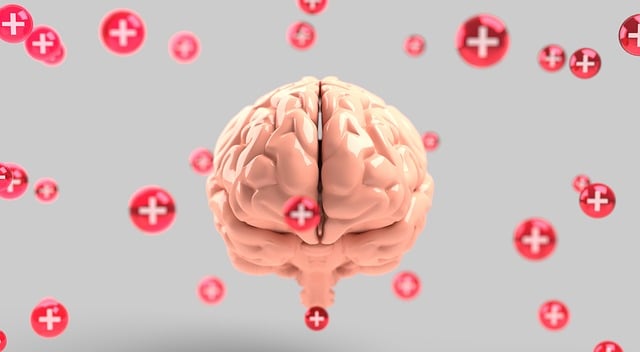Crisis Intervention Teams (CITs), trained in Acceptance and Commitment Therapy (ACT), are vital for supporting young adults in severe emotional distress or suicidal ideation. ACT focuses on psychological flexibility, emotional regulation, and mindfulness to help individuals accept emotions and commit to valued actions, improving coping skills and mental wellness. Effective CIT training combines ACT with self-care practices, community outreach, and emotional intelligence development. Integrating ACT into crisis intervention programs empowers professionals to navigate diverse crises, fostering positive outcomes for young adults' mental health.
Crisis intervention teams play a vital role in supporting young adults facing mental health crises. This article explores comprehensive crisis intervention team training programs, focusing on Acceptance and Commitment Therapy (ACT) as an effective approach for therapy in young adults. We delve into the key components of successful training, implementation strategies, and methods to measure the impact. Understanding these elements is crucial for organizations aiming to enhance their support systems and improve outcomes for youth in crisis.
- Understanding Crisis Intervention Teams: Role and Importance
- Therapy for Young Adults in Crisis: Acceptance and Commitment Therapy (ACT) Overview
- Key Components of Effective Crisis Intervention Training Programs
- Implementation and Challenges: Putting ACT into Practice for Youth
- Measuring Success: Evaluating the Impact of Crisis Team Training
Understanding Crisis Intervention Teams: Role and Importance

Crisis Intervention Teams (CITs) are specialized groups of professionals trained to respond to individuals in crisis, particularly young adults facing severe emotional distress or suicidal ideation. These teams play a pivotal role in communities by providing immediate and effective support, aiming to de-escalate situations and connect individuals with long-term mental health resources. The focus on early intervention is crucial, as it can prevent escalation and promote better outcomes for young adults struggling with their mental wellness.
Acceptance and Commitment Therapy (ACT), a well-regarded approach in therapy for young adults, often informs CIT training. This therapy emphasizes emotional regulation, mindfulness, and the development of psychological flexibility to manage distressing thoughts and behaviors. By integrating ACT principles, CIT members gain valuable skills in understanding and responding to the unique needs of young adults, fostering a more supportive environment for their mental wellness. Additionally, community outreach program implementation and emotional intelligence are key aspects of CIT development, ensuring these teams can effectively navigate and respond to diverse crises within their communities.
Therapy for Young Adults in Crisis: Acceptance and Commitment Therapy (ACT) Overview

For young adults navigating crises, Acceptance and Commitment Therapy (ACT) offers a powerful approach to healing and growth. This evidence-based therapy emphasizes psychological flexibility, helping individuals accept their emotions while committing to actions that align with their values. By fostering emotional intelligence, ACT empowers young adults to overcome challenges such as anxiety, depression, and post-traumatic stress disorder (PTSD).
ACT goes beyond traditional talk therapy by integrating mindfulness techniques and cognitive strategies. Mental wellness coaching programs can incorporate elements of ACT to support burnout prevention strategies for healthcare providers while promoting self-care practices. This holistic development approach encourages young adults to cultivate resilience, enhance their coping mechanisms, and lead more fulfilling lives despite life’s ups and downs.
Key Components of Effective Crisis Intervention Training Programs

Effective crisis intervention team training programs are multifaceted and inclusive, incorporating a range of key components to prepare individuals for handling crises in various settings. One of the cornerstone approaches gaining traction is Acceptance and Commitment Therapy (ACT), which empowers participants to cultivate psychological flexibility, helping them accept distressing thoughts and emotions without judgment while committing to valued actions. This therapy for young adults has proven effective in enhancing coping skills development, enabling team members to support individuals in navigating crisis situations with greater ease.
Additionally, these programs emphasize the importance of self-care practices within a supportive environment. Incorporating strategies from the Mental Wellness Podcast Series Production can facilitate open discussions on mental health and normalize seeking help. By fostering an atmosphere where professionals and clients alike can learn and grow, these training initiatives ensure that crisis intervention teams are well-equipped to respond effectively, promoting positive outcomes for all involved.
Implementation and Challenges: Putting ACT into Practice for Youth

Implementing Acceptance and Commitment Therapy (ACT) for young adults within crisis intervention team training programs presents both opportunities and challenges. One significant challenge is adapting evidence-based therapeutic practices to suit the unique needs and contexts of youth, ensuring that ACT remains accessible and culturally sensitive. This process involves careful consideration of age-appropriate coping skills development and mood management strategies. Training programs must also navigate the complexities of community outreach program implementation, fostering partnerships with schools, healthcare providers, and local support services to create a comprehensive care network for young adults in crisis.
Despite these challenges, ACT has shown promise in improving mental health outcomes for young adults. By teaching them to accept difficult thoughts and emotions while committing to valued actions, ACT empowers individuals to navigate life’s challenges more effectively. As such, integrating ACT into crisis intervention team training equips professionals with valuable tools to support the growing number of young adults facing mental health crises, contributing to a more robust and responsive community care system.
Measuring Success: Evaluating the Impact of Crisis Team Training

Measuring success is a vital component of evaluating the effectiveness of crisis intervention team training programs. In the context of helping young adults, therapy for young adults such as Acceptance and Commitment Therapy (ACT) has shown promising results. By integrating compassion cultivation practices, these programs aim to strengthen individuals’ inner strength development, enabling them to navigate crises with enhanced resilience. The impact is not solely behavioral; it extends to emotional well-being, fostering a sense of self-acceptance and mindfulness that carries over into daily life.
Social skills training is another key metric in assessing the success of crisis team training. Through role-playing scenarios and group discussions, participants learn effective communication strategies, conflict resolution techniques, and empathy building—all essential components for responding to crises in supportive and constructive manners. By measuring improvements in both individual coping mechanisms and interpersonal interactions, we gain insights into the holistic benefits of these training programs, ensuring that young adults are equipped with the tools they need to thrive amidst challenges.
Crisis intervention team training programs, enriched by therapeutic approaches like Acceptance and Commitment Therapy (ACT), play a pivotal role in equipping professionals to support young adults in crisis. By focusing on key components such as empathy, de-escalation techniques, and evidence-based practices, these programs foster effective interventions. Implementation challenges can be navigated through thorough training and ongoing support, ultimately leading to improved outcomes for vulnerable youth. Measuring success involves evaluating the impact on both individuals and systems, ensuring that crisis team training translates into meaningful, lasting change in therapy for young adults.











